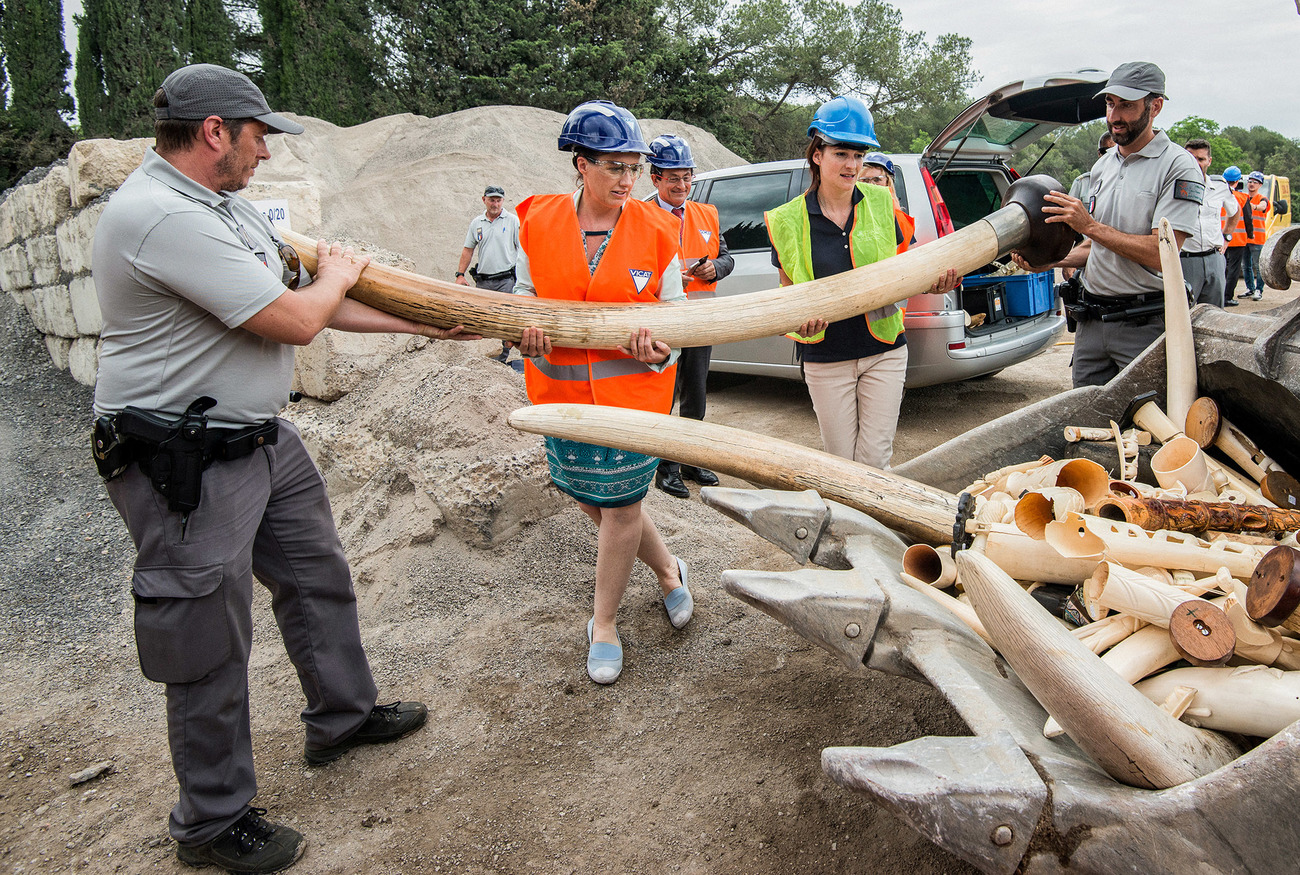Updates
How IFAW has helped animals and people during the Ukraine crisis
Learn moredisrupting wildlife cybercrime in Europe and Russia—new report uncovers the scale of online wildlife trade

You could be forgiven for thinking that wildlife crime is something that only affects animals and people in Africa and Asia, but the reality is that it is a global problem. The internet provides customers and wildlife traffickers access to a vast marketplace, one that is open 24 hours a day, seven days a week, 365 days a year.
The International Fund for Animal Welfare (IFAW) released our latest report entitled Disrupt: Wildlife Cybercrime - Uncovering the scale of online wildlife trade which looks at the scale of online trade in endangered and threatened species offered for sale in France, Germany, Russia and the United Kingdom over a period of six weeks in 2017. Our research identified 11,772 protected wildlife specimens offered for sale via 5,381 advertisements and posts on 106 online marketplaces and four social media platforms, worth approximately US $3,942,329.
We discovered advertisements and posts offering body parts and taxidermy from cheetahs, leopards, lions and tigers and live big cats for sale online. Shockingly, we also found over 150 live primates for sale, as well as rhino horn products, ivory and suspected ivory, and elephant feet, skin and hair products – all available to buy over the internet.
A total of 80% of specimens were live animals, demonstrating the popularity of owning exotic animals as pets. Reptiles were by far the most numerous protected specimens identified, with live tortoises and turtles, in particular, representing 45% of specimens. Almost a quarter of the remaining specimens were birds, including endangered African grey parrots.
Our research indicates that the scale of the online trade in ivory and suspected ivory remains significant, with 1,288 ivory and suspected ivory specimens offered for sale across 996 advertisements. This further highlights that the UK ivory ban, due to be introduced in October this year, is much needed. It’s essential that the European Union follow suit and implement an ivory ban across the EU.
IFAW’s work goes beyond simply assessing the scale and nature of online trade. We collect, analyse and share information on trends with enforcers and online technology companies so they can disrupt and dismantle criminal networks and make online marketplaces and social media platforms a no-go zone for wildlife cybercriminals. One of the key challenges in this respect is distinguishing legal from illegal trade, as in some cases trade in certain species may be permitted. We have therefore taken a conservative approach and only referred a limited amount of 190 information logs, concerning 327 advertisements and posts, to national law enforcement agencies for further investigation.
IFAW’s work over the past 14 years has directly led to 15 online technology companies adopting wildlife policies. In fact, in March 2018, IFAW, WWF and TRAFFIC launched the Coalition to End Wildlife Trafficking Online with 21 founding companies, which aims to secure an industry-wide approach to reduce wildlife trafficking online by 80% by 2020. Disrupt: Wildlife Cybercrime also identifies some success stories including a notable reduction in the overall wildlife offered for sale over eBay’s sites, as well as a significant reduction in ivory trade over eBay’s sites in France and the UK. Additionally, there has been a reported decrease in the number of African grey parrots sold on leboncoin in France; an absence of raw ivory being sold online in France following the EUs guidelines banning raw ivory trade; and no ivory found on QUOKA and Markt in Germany and Preloved in the UK after they introduced ivory bans following IFAW’s 2014 Wanted – Dead or Alive report. In addition eBay, Etsy, Facebook, and Instagram have stated that all the advertisements and posts which we identified and that breached their policies were removed.
However, more needs to be done if we are to win the battle against wildlife cybercrime. Governments need to allocate sufficient enforcement resources to identify and prosecute wildlife cybercriminals, while more online marketplaces and social media platforms need to join the Coalition to End Wildlife Trafficking Online and ensure their sites are a no-go zone for wildlife traffickers.
So what can you do? Consumers and social media networkers can play a vital role by reporting potentially illegal advertisements and posts to the companies, and by not buying the illegal wildlife products and live animals in the first place. If you don’t buy, they don’t die.
Our work can’t get done without you. Please give what you can to help animals thrive.
Unfortunately, the browser you use is outdated and does not allow you to display the site correctly. Please install any of the modern browsers, for example:
Google Chrome Firefox Safari